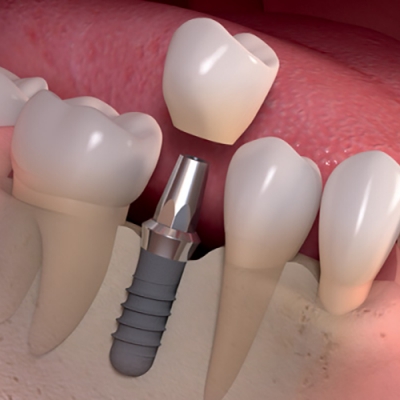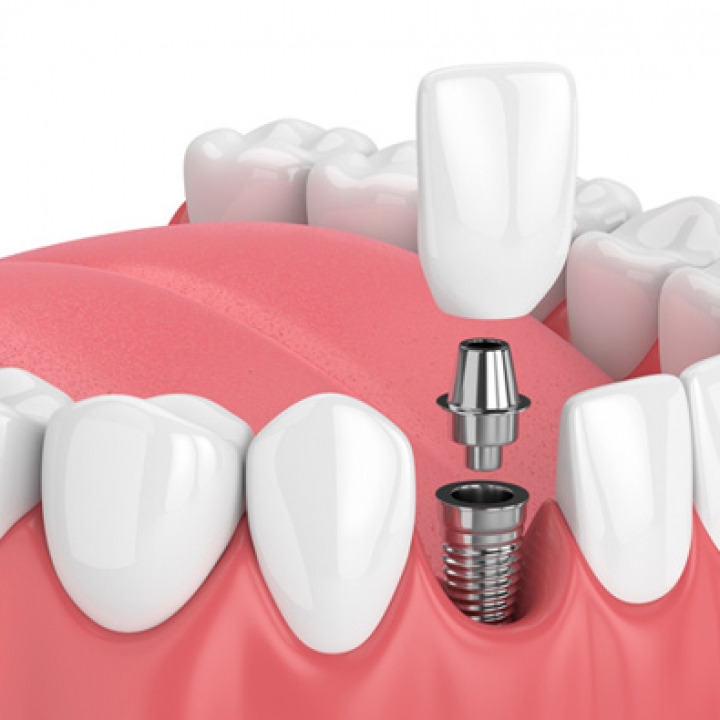What Are Dental Implants

Dental implants are metal posts or prosthesis that are surgically placed into the jawbone beneath your gums. Once in place, they allow your dentist to mount replacement teeth onto them. These replacement teeth can then either be a dental crown, dental bridge or denture that precisely fit on the implants.
For many people, ordinary dental bridges and dentures are simply not comfortable or many times not even possible. Poor long-term prognosis of adjacent teeth, sore spots, poor ridges and gagging are some reasons that make the choice for dental implants an easy decision.
"Dental implants are the closest you can get to healthy, natural teeth."
Conventional dental bridges must be attached to teeth on either side of the space left by the missing tooth. A big advantage of implants is that no adjacent teeth need to be prepared or ground down to hold your new replacement tooth/teeth in place.
For dental implants to be considered you must have healthy gums and adequate bone to support the implant. You must also commit to keeping these structures healthy. Meticulous oral hygiene and regular dental visits are also critical to the long-term success of dental implants.
Cost Of Dental Implants
Although slighlty more expensive than traditional dental bridges, the long-term financial investment and quality of life that dental impants offer outweighs the other options. How to budget for your dental implants:
1) Consider to wait and rather do the dental implant at a later stage
2) Ask your dentist if you cannot do the dental implant in stages.
3) Consider all your budget options







